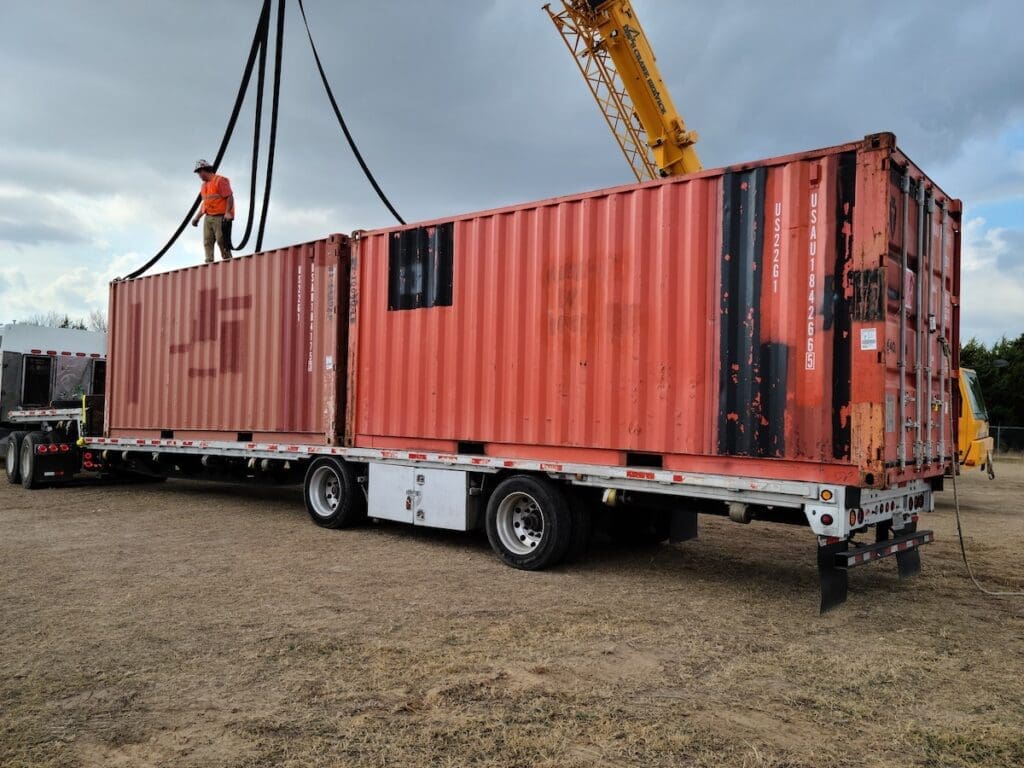The current shipping problem is on everyone’s radar. Though freight is at near-record volumes, products cost more to ship and take longer to deliver. Factors driving the price hike and delivery slowdown are many. Diesel fuel is at a three-year high. The new Electronic Logging Device (ELD) Rule forces drivers to limit their time behind the wheel. A nationwide driver shortage is taking a toll on the transportation industry, as is a truck shortage. According to freight marketplace DAT Solutions LLC, last January the spot market saw three loads waiting for every available truck. This year, there were 10 loads waiting. For loads requiring temperature-controlled trucks, the weight ratio was around 15 to one. The Wall Street Journal reports that shipping costs between 2009 and 2017 rose more than seven times faster than product prices. And the problem isn’t going away—in fact, experts predict that shipping costs will continue to rise.
And though there’s no one solution to the multi-faceted problem, there is a simple way for shippers and brokers to keep costs low: Build and maintain relationships with carriers.
Shipping Costs and Relationships
The connection between costs and relationships may not be obvious at first glance, but it does make sense. Carriers want to work with shippers and brokers who treat them well, pay on time, and give them steady work. For that reason, strong long-term relationships can translate into more favorable rates—as much as 12 percent* compared to traditional shipping lane pricing. Long-term contracts are key to these better rates. A guarantee of steady work (and money) allows carriers to find other customers who can help them minimize deadhead miles and keep costs low.
* typically 3-5 percent, with higher savings when capacity is tight)
How to Build Better Carrier Relationships
It’s those kinds of win-win solutions that can keep your shipping costs low. But to come up with solutions, you have to know your carriers, to understand the needs of their business, and to appreciate the people behind the companies. How can you build and maintain those relationships?
Communicate.
You’ve heard it before: Regular communication is the key to a healthy relationship. You’ve also heard that communication is a two-way street. Both adages are true when it comes to carrier relationships. Keep the lines of communication open by scheduling regular meetings with carriers where you can review performance, discuss any issues, and keep each other up-to-date on new services or opportunities. In addition, make it a habit to talk to carriers upon completion of their loads. Get their opinion of the lanes, and find out if they experienced problems or foresee any future complications. In addition to these regular conversations:
- Make sure all of your staff communicates respectfully and that they give carriers the information they need.
- Provide information. Utilize software that offers carriers detailed information: freight characteristic percentages, monthly volumes, and lane and tonnage data.
- Deliver transparency. Talk to your carrier about any rate changes and the reason for them. If you’re considering changing carriers because of cost, let them know. They may be willing to negotiate.
- Ask what changes could help them. What lanes, freight, and weight do they prefer? Do they need help with other lanes? How do they feel about LTL loads? Would they rather they be sent out for a separate bid? Are there any changes that might help your carriers that won’t impact your operations?
Offer perks to drivers.
Some corporations give gifts, throw parties, and allow drivers to take their breaks on company property. Find out what drivers want and what a great experience would look like to them. You may be able to streamline pickups and load-ins, to simplify processes, or even to…
Rethink lanes and routes.
Some drivers will quit rather than drive a “bad” lane. Many of them avoid multi-stop routes. Given the driver and truck shortages, drivers can afford to be picky. Anything that makes them unhappy will drive rates up. If you can create a better lane or change a route, why not do it?
Improve scheduling.
You can also make drivers and carriers happier by giving them fast load-unload times, and more lead time (this is especially true when using a new carrier that may need extra time to get its systems and personnel organized). Also, offer online scheduling, or even extend the window of time when carriers can access freight.
Be flexible.
As mentioned, increased access to freight could be helpful, as could a little flexibility with time. If you have some wiggle room in terms of delivery, offer it to carriers. They may be able to reconfigure routes to their advantage and ultimately to your benefit as well.
Build people-to-people relationships.
Take a few minutes to ask about the person at the end of the phone. Sports, weather, family—it’s all fair game for conversation and can help you and your carrier establish a comfortable working relationship. If you have a number of carriers, consider taking notes to help you remember important details
Skip the RFPs.
Keep your good relationships good by not making your favorite carriers go through the headache of drafting an annual RFP every year or whenever there’s a new opportunity. Treat your carriers as partners. Let them know you appreciate their good work by demonstrating that you’re with them for the long haul.
Foster trust.
All of the tips above can help you build long-term relationships with carriers, and all of them create trust. But you can go further. Call your trusted carriers first when a new opportunity arises. Keep your commitments to them, even when it means you may not get the absolute lowest price on a particular load. The loyalty and service you’ll receive in the future will outweigh any short-term savings. Long-term relationships lead to long-term savings—better service that results in happier customers, better shipping rates through long-term contracts, and the benefits that come from having a carrier you can count on when you’re in a pinch.
We have strong relationships with our carriers.
We’d like to have one with you, too.
At Next Exit Logistics, we understand the value of loyalty and strong relationships. We earn the trust of our clients with efficiency, transparency, and security. In addition, we understand how to handle freight services for unusual, oversize, or overweight shipments and are certified to arrange the shipment of hazardous materials. To learn more about our services, call Next Exit Logistics at 866-624-2661 or contact us via e-mail.



